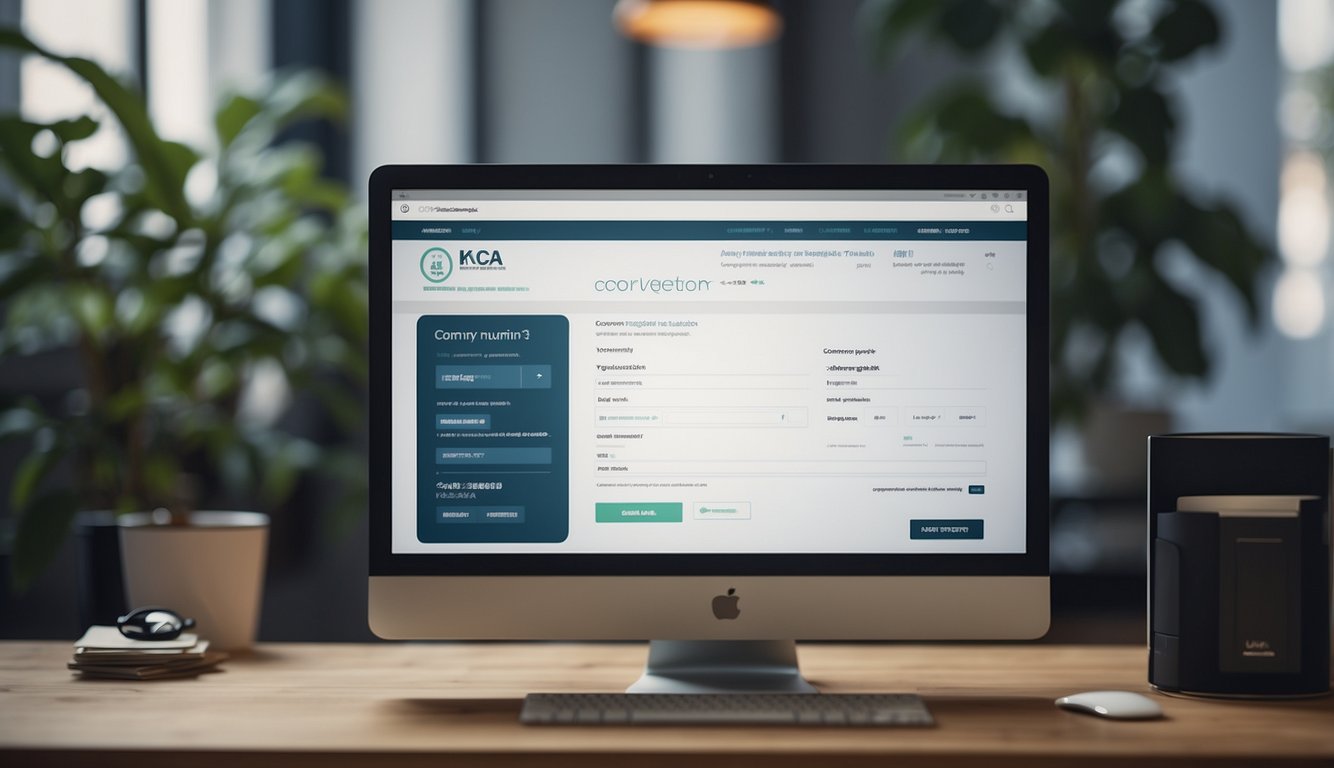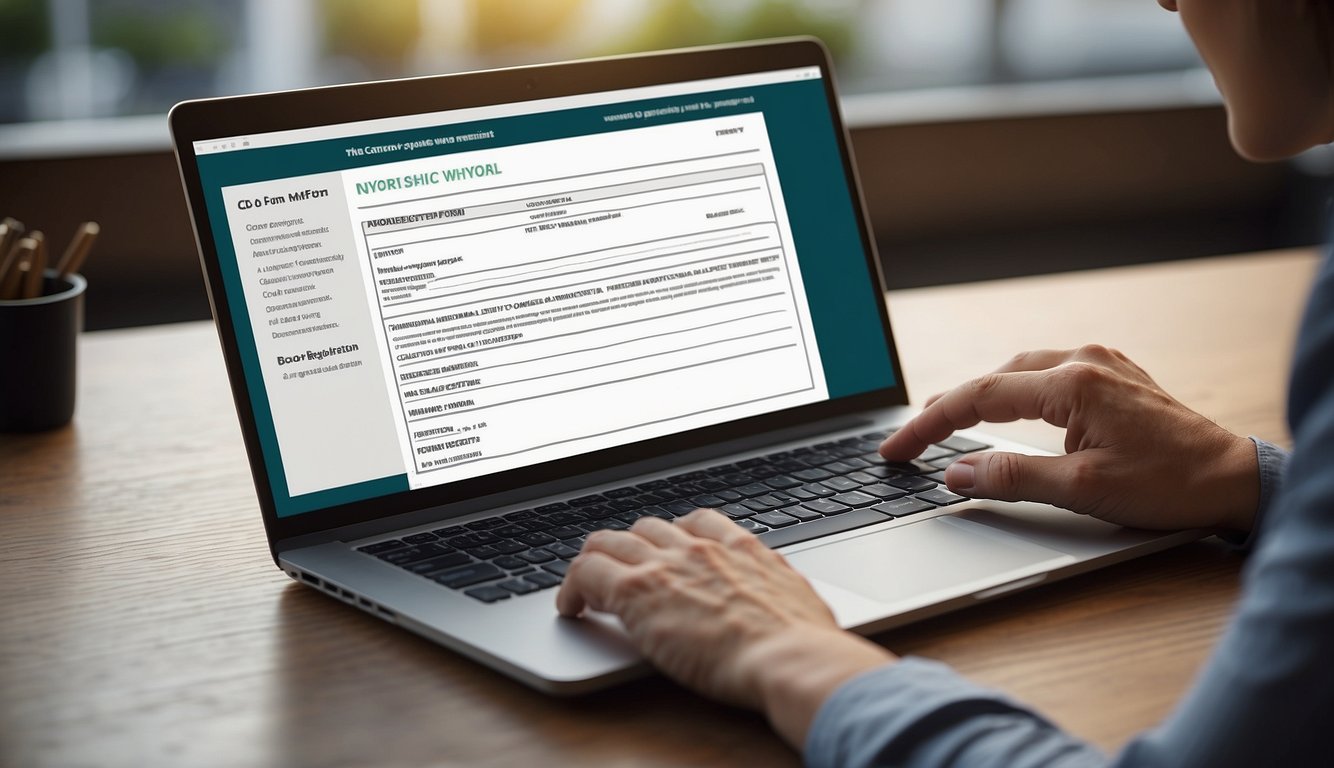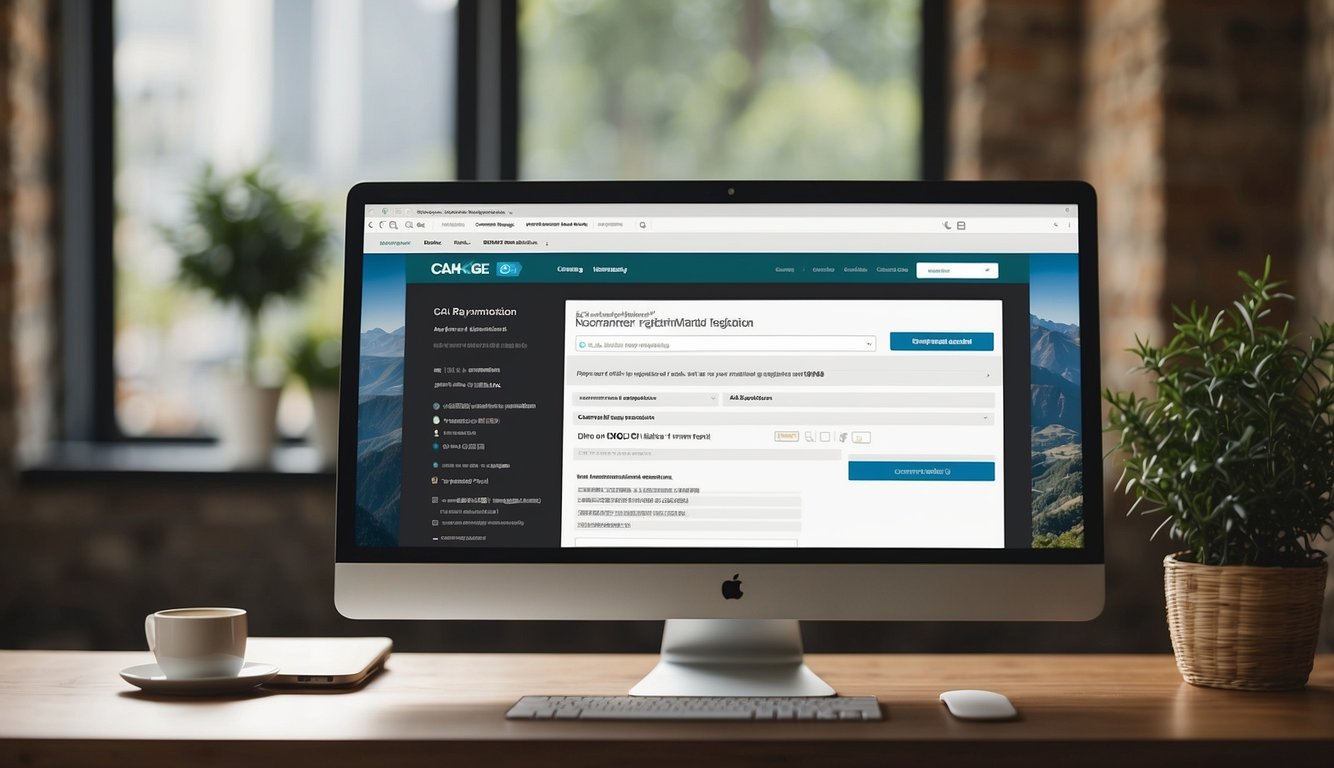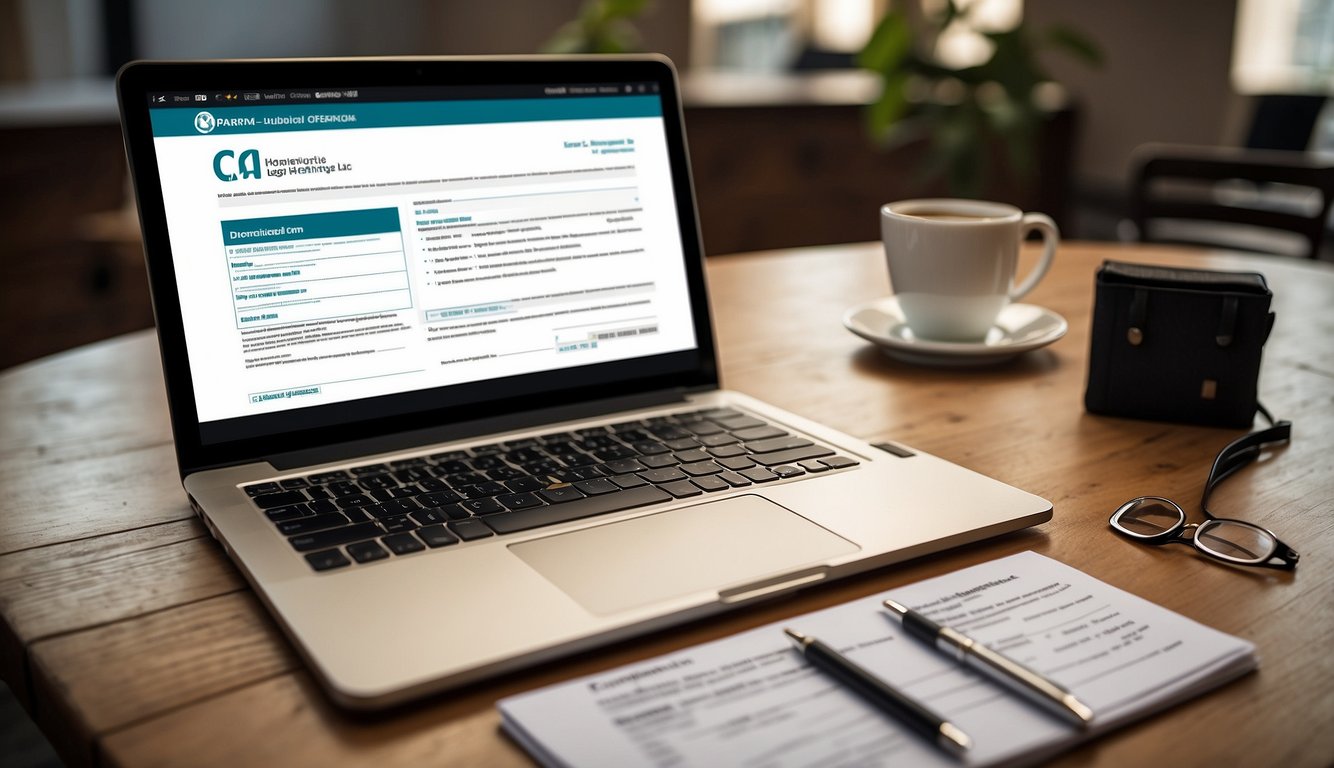If you’re looking to start a non-governmental organization (NGO) in Nigeria, you’ll need to register it with the Corporate Affairs Commission (CAC).
This process can be done entirely online, making it convenient and accessible for anyone with an internet connection. In this article, we’ll guide you through the steps of registering an NGO online with CAC in Nigeria.
First, it’s important to understand what an NGO is. An NGO is a non-profit organization that operates independently of the government and aims to address social, cultural, or environmental issues.
NGOs can provide a range of services, from humanitarian aid to advocacy and education. In Nigeria, NGOs are regulated by the CAC, which oversees the registration process and ensures compliance with legal requirements.
By registering your NGO with CAC, you’ll gain legal recognition and be able to operate with greater transparency and credibility.
Table of contents
Understanding NGOs in Nigeria

Non-Governmental Organizations (NGOs) are important entities in Nigeria that provide various services to the public. In this section, you will get a better understanding of NGOs in Nigeria, their definition, types, roles, and importance.
Definition and Types of NGOs
NGOs are organizations that are independent of government control and operate without any profit motive. They are established to provide services to the public in different areas such as humanitarian, scientific, religious, social, educational, cultural, human rights, and health care.
There are different types of NGOs in Nigeria, which include:
- Community-based organizations (CBOs)
- Faith-based organizations (FBOs)
- International NGOs (INGOs)
- National NGOs (NNGOs)
Each of these types of NGOs has a specific focus and purpose. For instance, CBOs are established to provide services to a specific community or group of people, while INGOs operate across different countries to provide humanitarian services.
Role and Importance of NGOs
NGOs play a vital role in the development of Nigeria by providing much-needed services to the public. They complement the efforts of the government by filling gaps in areas where the government is unable to provide adequate services.
NGOs are important in Nigeria because they:
- Provide humanitarian services in times of crisis, such as natural disasters and conflicts
- Promote human rights and social justice
- Provide educational and health services to the public
- Promote cultural and religious activities
- Provide a platform for citizen participation in governance
In conclusion, NGOs are important entities in Nigeria that provide various services to the public. Understanding their definition, types, role, and importance is crucial for anyone interested in establishing an NGO in Nigeria.
Legal Framework for NGOs

To register an NGO online with CAC in Nigeria, it is important to understand the legal framework for NGOs. This section will cover the Companies and Allied Matters Act (CAMA), Incorporated Trustees, and Part F of CAMA.
Companies and Allied Matters Act (CAMA)
The Companies and Allied Matters Act (CAMA) is the legal framework for the registration of companies and other business entities in Nigeria. CAMA sets out the requirements for the registration of NGOs as Incorporated Trustees.
Under CAMA, an NGO can be registered as a company limited by guarantee or as an incorporated trustee.
A company limited by guarantee is a type of company that does not have share capital and is often used for not-for-profit organizations. An incorporated trustee is a legal entity that is created for the purpose of holding property or assets on behalf of a group of people.
Incorporated Trustees and Part F of CAMA
Part F of CAMA deals specifically with the registration of Incorporated Trustees. This section sets out the requirements for the registration of NGOs as Incorporated Trustees.
To register an NGO as an Incorporated Trustee, you must first appoint a minimum of two trustees. The trustees must be individuals who are at least 18 years old and can contract. The trustees will be responsible for managing the affairs of the NGO.
Once the trustees have been appointed, you must prepare a constitution for the NGO. The constitution must contain the objectives of the NGO, the rules for the management of the NGO, and the procedures for the appointment and removal of trustees.
You must also prepare a statement of affairs and a declaration of compliance with the requirements of Part F of CAMA. The statement of affairs must contain details of the assets and liabilities of the NGO. At the same time, the declaration of compliance must be signed by the trustees and the lawyer who prepared the documents.
In conclusion, understanding the legal framework for NGOs is crucial for registering an NGO online with CAC in Nigeria. By following the requirements set out in CAMA and Part F of CAMA, you can ensure that your NGO is registered in compliance with Nigerian law.
Pre-Registration Requirements

Before registering your NGO online with the Corporate Affairs Commission (CAC) in Nigeria, there are certain requirements that you must meet.
These requirements include choosing a unique NGO name, drafting the NGO constitution, and appointing the board of trustees.
Choosing a Unique NGO Name
The first step in registering your NGO online with CAC is to choose a unique name that is not already taken. The name should reflect the mission, aims, and objectives of your NGO. It is important to note that the name must not contain any offensive or sensitive words that could be deemed inappropriate.
Drafting the NGO Constitution
The NGO constitution is a document that outlines the rules and regulations that govern the organization. It should include the mission, aims, and objectives of the NGO, as well as the powers and responsibilities of the board of trustees.
The constitution should also include a special clause that ensures the assets of the NGO are used solely for the benefit of the organization and not for personal gain.
Appointing the Board of Trustees
The board of trustees is responsible for the overall management and direction of the NGO. The board should be made up of individuals who are committed to the mission and objectives of the organization. The board should also have a diverse range of skills and expertise that will help the NGO achieve its goals.
In conclusion, meeting the pre-registration requirements is an important step in registering your NGO online with CAC in Nigeria.
By choosing a unique NGO name, drafting a comprehensive constitution, and appointing a qualified board of trustees, you will be well on your way to establishing a successful and sustainable NGO.
The Registration Process

Registering an NGO with the Corporate Affairs Commission (CAC) in Nigeria can be done online through the CAC website.
Here are the steps involved in the registration process:
Name Availability Search and Reservation
The first step is to conduct a name availability search to ensure that the name you want to use for your NGO is available. This can be done on the CAC website. If the name is available, it can be reserved for 60 days by paying a fee of N10,000.
Filling the Application Form
After reserving a name, the next step is to complete the application form on the CAC website.
The form requires information such as the name of the NGO, its objectives, the names and addresses of the trustees, and the address of the NGO’s office. It is important to ensure that all the information provided is accurate and up-to-date.
Submission of Required Documents
Along with the application form, certain documents are required to be submitted to the CAC. These include a copy of the NGO’s constitution, a copy of the trustees’ identification documents, and a statement of the NGO’s activities. These documents must be scanned and uploaded on the CAC website.
Payment of Registration Fees
The final step in the registration process is to pay the registration fee, which is currently set at N150,000. This can be done online using a debit card or through a bank transfer. Once the payment is confirmed, the CAC will issue a certificate of registration, which completes the process.
In conclusion, registering an NGO online with the CAC in Nigeria involves conducting a name availability search, completing the application form, submitting the required documents, and paying the registration fee.
It is important to ensure that all the information provided is accurate and up-to-date to avoid any delays or complications in the registration process.
Post-Registration Steps

Congratulations! You have successfully registered your NGO with the Corporate Affairs Commission (CAC) in Nigeria.
However, there are a few more steps that you need to take to ensure that your NGO is fully compliant with the law and ready to operate.
Publication in National Newspapers
After registering your NGO with CAC, you are required to publish a notice of incorporation in at least two national newspapers. This is to inform the public of the existence of your NGO and to give anyone who may have objections to the registration an opportunity to raise them.
You can choose any two national newspapers of your choice. Still, it is recommended that you choose widely circulated newspapers to ensure that as many people see your notice as possible. The notice should include the name of your NGO, the date of incorporation, and the registration number issued by CAC.
Acquiring a TIN from FIRS
Every NGO in Nigeria is required to obtain a Tax Identification Number (TIN) from the Federal Inland Revenue Service (FIRS). This is a unique number that identifies your NGO for tax purposes.
To obtain a TIN, you will need to visit the nearest FIRS office with the following documents:
- Certificate of incorporation issued by CAC
- Copy of your NGO’s constitution
- Board resolution authorizing you to apply for a TIN
- Letter of introduction from your NGO
Once you have submitted these documents, you will be issued a TIN within a few days.
Opening a Bank Account
To operate as an NGO in Nigeria, you need to have a bank account in the name of your organization. This is where you will receive donations, grants, and other forms of funding.
To open a bank account, you will need to provide the following documents:
- Certificate of incorporation issued by CAC
- TIN issued by FIRS
- Board resolution authorizing you to open a bank account
- Letter of introduction from your NGO
- Two passport photographs of each signatory to the account
You should also note that some banks may require additional documentation, so it is best to check with your chosen bank beforehand.
By completing these post-registration steps, you will be able to operate your NGO in Nigeria with confidence and in compliance with the law.
Operating an NGO in Nigeria

As an NGO operating in Nigeria, it is important to maintain a positive corporate image and comply with legal requirements. This will help to build trust with stakeholders and ensure the sustainability of your organization.
Here are some key considerations to keep in mind:
Maintaining Corporate Image and Compliance
To maintain a positive corporate image, it is important to be transparent and accountable in your operations. This includes keeping accurate financial records, adhering to ethical standards, and communicating effectively with stakeholders.
Additionally, it is important to comply with legal requirements such as registering with the Corporate Affairs Commission (CAC) and obtaining necessary permits and licenses.
Fundraising and Managing Donations
Fundraising is a critical aspect of NGO operations, and it is important to have a clear strategy for soliciting and managing donations. This may include applying for grants, seeking funding from corporate sponsors, or collecting membership dues.
It is important to be transparent about how funds are used and to ensure that they are used in accordance with the organization’s mission.
Annual Returns and Legal Obligations
NGOs are required to file annual returns with the CAC, which includes financial statements and other relevant information about the organization’s operations.
Additionally, NGOs are subject to other legal obligations, such as paying taxes and complying with labor laws. It is important to stay up-to-date on these requirements to avoid penalties or legal issues.
In summary, operating an NGO in Nigeria requires a commitment to maintaining a positive corporate image, effective fundraising and donation management, and compliance with legal requirements.
By keeping these considerations in mind, you can help to ensure the success and sustainability of your organization.
Challenges and Solutions

Common Challenges Faced by NGOs
Starting an NGO can be a daunting task, and there are many challenges that you might face along the way. Some of the common challenges faced by NGOs in Nigeria include:
- Lack of funding: One of the biggest challenges that NGOs face is lack of funding. It can be not easy to secure funding for your organization, especially if you are just starting out.
- Limited access to credit: Many NGOs struggle to access credit from financial institutions, which can make it difficult to fund their projects and operations.
- Difficulty in attracting volunteers: NGOs often rely on volunteers to help them achieve their goals. However, it can be challenging to attract and retain volunteers, especially if your organization is not well-known.
- Poor management: Poor management can lead to a lack of direction and focus, which can be detrimental to the success of your NGO.
Strategies for Stability and Growth
To overcome these challenges and ensure the stability and growth of your NGO, there are several strategies that you can employ:
- Diversify your funding sources: Instead of relying on one source of funding, try to diversify your funding sources. This can include applying for grants, crowdfunding, and soliciting donations from individuals and corporations.
- Build relationships with financial institutions: Building relationships with financial institutions can help you access credit when you need it. Consider partnering with a financial institution that has experience working with NGOs.
- Develop a strong volunteer program: To attract and retain volunteers, you need to develop a strong volunteer program. Offer training and development opportunities, recognize and reward volunteers for their contributions, and create a positive and inclusive culture.
- Invest in management: Investing in management can help ensure that your organization is well-run and focused on achieving its goals. Consider hiring experienced managers or providing training and development opportunities for your existing management team.
By implementing these strategies, you can overcome the challenges that many NGOs face and ensure the stability and growth of your organization.
Additional Considerations

When registering an NGO online with CAC in Nigeria, there are some additional considerations you should keep in mind to ensure a smooth registration process.
In this section, we will cover three important points: involving foreigners in NGO operations, the benefits of registering an NGO, and legal assistance and professional advice.
Involving Foreigners in NGO Operations
If you plan to involve foreigners in your NGO operations, it is important to note that there are certain restrictions and requirements to be met.
According to Nigerian law, foreigners are not allowed to be members of the board of trustees or the governing body of an NGO.
However, they can be appointed as advisers or consultants. Also, all foreigners must obtain a work permit before they can work in Nigeria.
Benefits of Registering an NGO
Registering an NGO in Nigeria comes with several benefits. Firstly, it gives your organization legal status and recognition, which makes it easier to access funding and grants.
Secondly, it provides a platform for you to carry out your activities and achieve your goals without interference from government agencies or individuals.
Lastly, it gives your organization credibility and legitimacy, which can help in building partnerships and collaborations with other organizations.
Legal Assistance and Professional Advice
Registering an NGO can be a complex and time-consuming process, especially if you are not familiar with the legal requirements.
It is advisable to seek legal assistance and professional advice from qualified lawyers or consultants. They can guide you through the registration process, ensure that your organization meets all the legal requirements, and help you avoid any legal issues in the future.
In conclusion, registering an NGO online with CAC in Nigeria requires careful consideration of the above factors.
By involving foreigners in your NGO operations, understanding the benefits of registering an NGO, and seeking legal assistance and professional advice, you can ensure a successful registration process.
